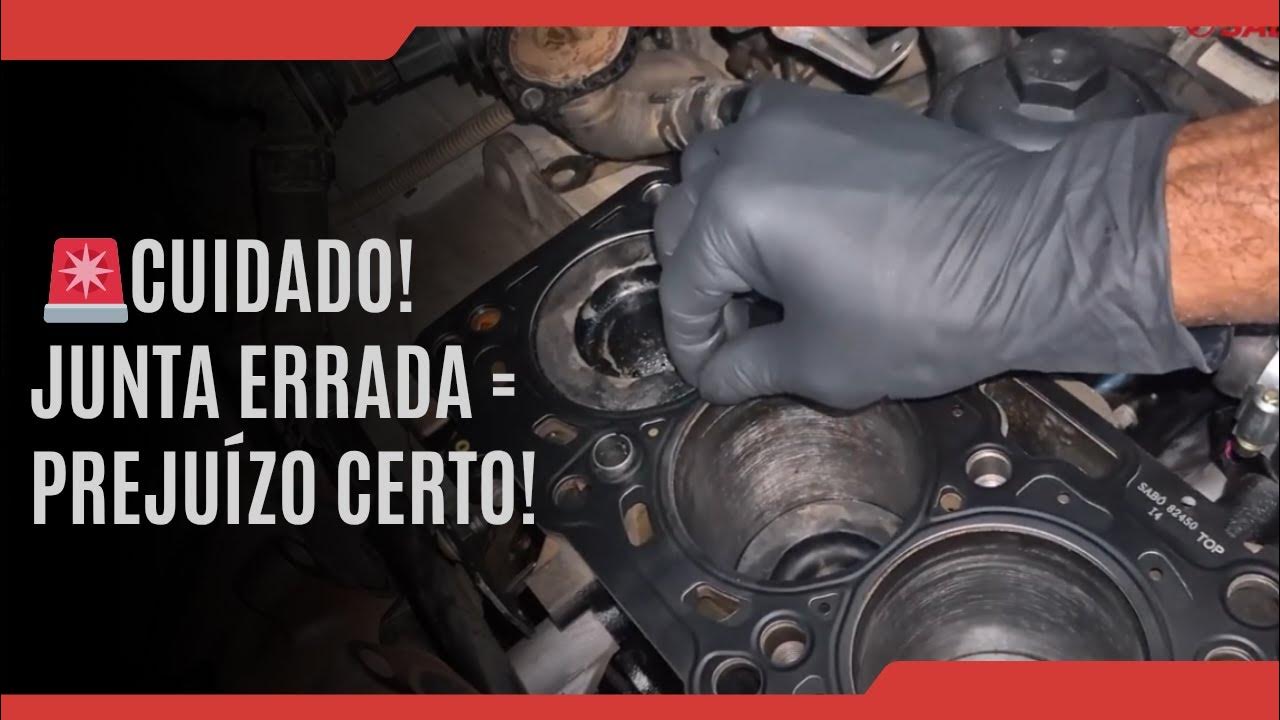How To Torque Cylinder Head Bolts
Summary
TLDRIn this video, Eric demonstrates the proper method for torquing a cylinder head on a BMW e30 M20 B25 engine. He emphasizes the importance of following a specific sequence: first to 30 Newton meters or 22 pounds, then 90 degrees twice. A special tool, resembling a protractor for a torque wrench, is used to ensure the correct angle of torque. The video also covers the preparation of the engine, including cleaning and oiling the bolts, and using a precise torque wrench for accuracy. Eric shares his experience with past issues of blown head gaskets and hopes this method will prevent future problems.
Takeaways
- 🔧 The video demonstrates the correct method to torque a cylinder head, specifically for a BMW e30 M20 B25 engine.
- 🛠️ A special tool, resembling a protractor for a torque wrench, is used to ensure the proper angle of torque is applied to the head bolts.
- 💡 The process involves tightening the head bolts in a sequence of stages, with specific degrees of rotation rather than just torque values.
- 📚 The BMW manual specifies a particular order and method for tightening the head bolts, including initial torque and subsequent 90-degree turns.
- 🧰 The engine has been recently rebuilt, and all components such as the head bolts and the head gasket are cleaned and prepared for assembly.
- 🔩 The head bolts are Torx type, requiring a specific tool for tightening, and are initially tightened to 22 pounds or 30 Newton meters.
- 🔄 A cross-pattern is used for tightening the bolts to ensure even distribution of torque across the entire cylinder head.
- 🛒 The video mentions a recommended torque wrench and provides an Amazon link for purchasing the special tool used, with a disclosure about affiliate compensation.
- ⚙️ The tool is used to mark the torque wrench at 0 and 90 degrees to facilitate the correct angle of rotation for the bolts.
- 📹 The video includes a demonstration of the entire process, from preparing the engine to the final tightening of the head bolts.
Q & A
What is the engine being discussed in the script?
-The engine being discussed is a BMW M20 B25, a 2.5-liter inline-six engine from a BMW E30.
Why is a special tool used for torquing the cylinder head?
-A special tool is used to ensure the correct angle of torque is applied to the head bolts, which is crucial for avoiding issues like blown head gaskets that have occurred in the past with this particular engine.
What is the purpose of torquing the head bolts in a specific sequence?
-Torking the head bolts in a specific sequence, including turning them to a certain number of degrees, ensures even distribution of torque across all bolts, which is essential for the proper sealing and longevity of the engine.
What is the first step in torquing the head bolts according to the BMW manual?
-The first step is to tighten the head bolts to 30 Newton meters or 22 foot-pounds.
How does the special tool function as a 'protractor' for the torque wrench?
-The tool helps to measure the angle of torque applied to the bolts, ensuring that each bolt is tightened to the correct angle as specified by the manufacturer.
Why is it important to clean and oil the head bolts before installation?
-Cleaning and oiling the head bolts ensures they go in smoothly and reduces the risk of cross-threading or damaging the threads, which is critical for proper assembly and function of the engine.
What is the significance of using a high-quality torque wrench for engine work?
-A high-quality torque wrench provides more accurate measurements, which is essential for engine work where precise torque values are critical to ensure the engine's integrity and performance.
What is the recommended pattern for tightening the head bolts on the BMW E30 engine?
-The recommended pattern is a cross pattern, starting from the center and working outwards, which helps to distribute the torque evenly across the entire head.
What is the second step in the torquing process after the initial 30 Newton meters?
-After the initial torque of 30 Newton meters, the bolts are then turned an additional 90 degrees, and this process is repeated once more for a total of two 90-degree turns.
Why is it beneficial for the presenter to provide a link to the tools used in the video?
-Providing a link to the tools used allows viewers to easily purchase the same equipment, which can be helpful for those attempting a similar project, and the presenter may also receive a small compensation for the referral.
Outlines

This section is available to paid users only. Please upgrade to access this part.
Upgrade NowMindmap

This section is available to paid users only. Please upgrade to access this part.
Upgrade NowKeywords

This section is available to paid users only. Please upgrade to access this part.
Upgrade NowHighlights

This section is available to paid users only. Please upgrade to access this part.
Upgrade NowTranscripts

This section is available to paid users only. Please upgrade to access this part.
Upgrade NowBrowse More Related Video

How to Rebuild Small Block Chevy 350 5.7L Cylinder Heads

Dave Walker of Emerald M3D on Modifying Cylinder Heads for Performance

NTK - Engine Cylinder Head Temperature Sensor

Cylinder Head Warpage Check - How to Measure Warpage

Como definir a altura da junta de cabeçote Amarok

Engine Instruments Explained! | Engines 01 ✈️✈️
5.0 / 5 (0 votes)